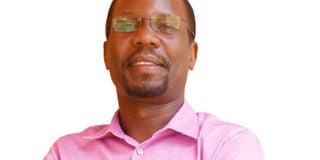Anti-corruption march was an exercise in redundancy

A first take suggests something noble: a president leading a march against the pervasive crime of corruption.
Yes, many (possibly most) social media Ugandans panned the endeavour, with some wishing a strike by lightning on the massed marchers. Others made fun of the bloated bellies of many of the marching men — their stomachs were apparently full of corrupt shillings.
For the spectacle to flow smoothly, the city centre was closed to traffic and it appears the authorities did a lousy job of warning motorists and cyclists. The jam that formed on the edges of the central business district caused so much anger.
Why not denounce corruption on a Sunday, a slow day traditionally with far fewer people seeking to access the heart of the city? Or better still, Wednesday should have been declared a public holiday. It was not to be because some powerful people’s tone deafness is incurable.
I had a 10am meeting at Parliament Avenue. I jumped on a boda and was there on time. Barely. A few others did the same. But the chairman of the meeting could not make it. He is not the type to use a boda under any circumstance. Wise man, probably. He was stuck in jam in Bugolobi. We cancelled the meeting.
An international agency asked its staff the night before to report to work in the afternoon. Smart chaps.
All these reactions certainly got the word corruption on people’s antennas for a few hours. If that were the intent, the march succeeded.
The whole thing, in reality, was an exercise in redundancy. Public awareness on corruption is not lacking. Look at the results of any public opinion poll and you find that corruption almost always is one of the top three things Ugandans want the government to address; alongside unemployment and either health or education or roads.
The polls also do show that a large majority of Ugandans are not satisfied with the government’s anti-corruption efforts. Those efforts are feeble and the people see through them. They are gimmick.
Much of the corruption is in procurement, which ropes together the public and private sectors. The private sector bribes the public sector (read officials of President Museveni’s government) almost always at the latter’s solicitation.
So the march was a loud and sweaty reminder of President Museveni’s failure to fight corruption over the three decades-and-counting that he has ruled Uganda. It was such an effective self-indictment.
It got even worse because some Ugandans were not allowed to march as they saw fit. There had to be only one show.
The mean-spiritedness in preventing Opposition leaders like Kizza Besigye to do their own thing, even if it was obviously geared to condemn the NRM government’s failure, was unnecessary.
The NRM does not only love to hoard power, but to also hoard foolishness. Yet we are reminded that fighting corruption starts with me, with you, with each of us individual Ugandans. Are Opposition politicians not Ugandans, or are they exempt from fighting corruption?
Besides, however the NRM government defines corruption, patronage is one obvious route through which political depravity marches.
When an election is around the corner and you consistently create new districts, cities, municipalities, constituencies, cultural institutions, name it, for proven electoral benefit, well, you have no moral basis to shut down the city’s nerve centre for hours for a circus show. It is obscene.
Bernard Tabaire is a media trainer and commentator on public affairs based in Kampala.
[email protected]
Twitter:@btabaire




